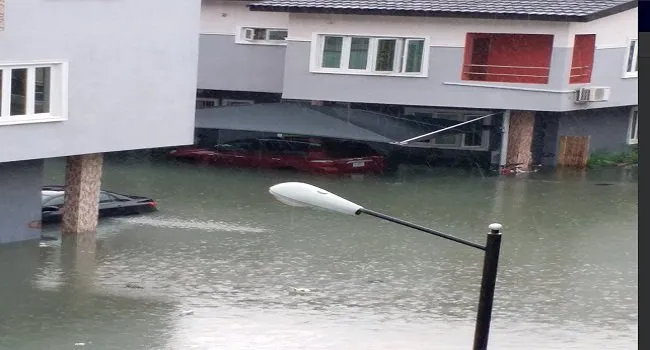The recent floods in Lekki have reignited fears about the future of Lagos’s most popular real estate hub, forcing many residents to reconsider life on the peninsula.
Mrs. Abiola Adekoya, a roasted plantain seller in Agungi, narrowly escaped death when she slipped into a manhole during the September 23 downpour. “I lost ₦50,000 meant for my business, but I thank God for life,” she said.
Across Ikota and other parts of Lekki, homes, schools, and businesses counted their losses. Malls struggled to drain floodwater, schools went virtual, and many residents were stranded for hours in traffic. “We made no sales that day; customers stayed home for fear of getting stuck,” said Segun Odunbaku, a facility manager at Ikota.
Some residents are now leaving. “I moved to Lekki to compete with my friends, but it’s not worth the stress,” said Michael Paul, who plans to relocate to the mainland. But others, like account manager Damilola Adinlewa, insist on staying. “It took me six hours to get home that night. Still, I’m not leaving Lekki. The government just needs to do more.”
Experts blame poor drainage and reckless sand-filling for worsening floods. Structural engineer Abiodun Adejare warned that continuous reclamation weakens the soil and raises collapse risks.
Lagos Environment Commissioner Tokunbo Wahab has since suspended all reclamation projects lacking Environmental Impact Assessments, warning violators of demolition.
Flooding in Lekki, experts say, reflects a deeper crisis “, a city built below sea level but without the kind of billion-euro defences seen in flood-prone cities like Rotterdam.
Unless the Lagos government strengthens infrastructure and enforces environmental laws, many fear that life in Lekki will remain an expensive gamble.
Source: The Guardian



